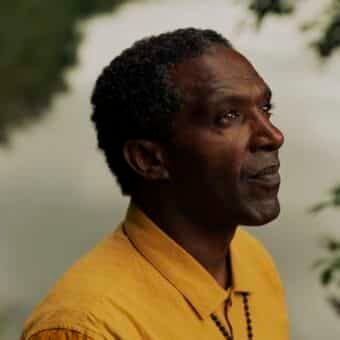
Lemn Sissay

Lemn Sissay’s acclaimed memoir My Name Is Why was a number one Sunday Times bestseller and won the Indie Book Awards non-fiction prize. He is a memoirist, poet, playwright and broadcaster, performing throughout the world. The BBC documentary about his life Imagine: The Memory of Me was nominated for a BAFTA award. His radio work has been nominated for Sony and Palm D’Ors. Lemn helped select the work for Hold Still a project spearheaded by The Princess of Wales which also became a Sunday Times bestseller. He was Chancellor of The University of Manchester from 2015 to 2022.
National Curriculum, care leavers and Christmas dinners
Lemn’s stage adaption of Benjamin Zephaniah’s Refugee Boy is on the national curriculum as a choice text, published by Oberon Books.
He started The Christmas Dinners in Manchester in 2013, a celebration for care leavers on Christmas Day. There are now Christmas Dinners across the country.
Lemn is trustee of The Foundling Museum and The Gold From The Stone Foundation. He is patron of The National Association for the Teaching of English. The University of Manchester runs The Lemn Sissay Law bursary. The University of Huddersfield runs the Lemn Sissay PhD scholarship for care leavers.
Actor Julie Hesmondhalgh read Lemn’s psychologists report for a court case he was bringing against the government in The report at the Royal Court which sold out in 24 hours and became national news. He later settled out of court with the government for critical mistakes in the first 18 years of his life.
Awards and honours
Lemn has been awarded honorary doctorates from the universities of Huddersfield, Manchester, Brunel, Kent, Essex and Leicester. He is visiting fellow at Jesus College Cambridge and a lifetime fellow of Mansfield College Oxford. He is honorary chair of creative writing at The University of Manchester. He received the special recognition award at Manchester Culture Awards. He is one of less than ten people requested to take the Freedom of The City of London whose alumni includes Nelson Mandela and King Charles.
What’s Lemn looking for in a memoir?
‘I want truth without the frills and imagination without boundaries.’
Find out more about Lemn Sissay
Go to Lemn’s website here
Twitter @lemnsissay
Instagram @sissaylemn
Photo credit: David Vintiner
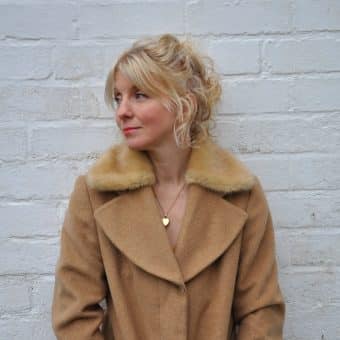
Liz Berry

Liz Berry is an award-winning poet and author of critically acclaimed collections Black Country (Chatto), The Republic of Motherhood (Chatto), The Dereliction (Hercules Editions) and most recently, The Home Child (Chatto), a novel in verse. The Guardian says Liz’s work is “a sooty soaring hymn to her native West Midlands” that celebrates the landscape, history and dialect of the region. Liz has received the Somerset Maugham Award, Geoffrey Faber Memorial Prize and Forward Prizes. Homing, her love poem for the language of the Black Country is part of the GCSE English syllabus.
What I’m looking for
I’m open to all kinds of poems: poems which surprise me with their boldness or tenderness, which make me curious or touch my heart; poems which feel risky and deep, where I know the poet’s whole self has been present in their making.
Words to my younger self
There’s a line I love by the poet Kim Addonizio which feels perfect: “listen I love you joy is coming”.
When I’m stuck…
I play. I make collages and tiny books, embroider lines from poems, free write in my notebook, go for walks, listen to songs on repeat, fold old pages into flowers, kiss the children and the cat. Poetry is the place I feel most free and there’s nothing as freeing as play.
Ever felt like giving up on writing?
Writing feels so precious to me that I’m not sure I could ever give it up and still be happy. But I do experience the deep disappointments that come with life as a writer and I have to remind myself to keep my chin up. It helps me to read a poem I love by another writer, as then I remember: ah, that’s why I do it, to try to give someone this feeling.
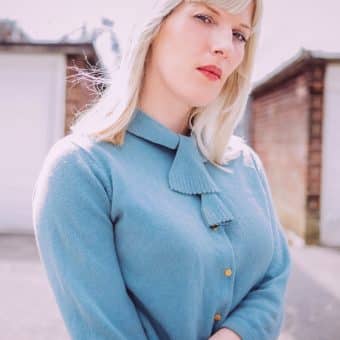
Wendy Erskine

Wendy Erskine is a Fellow of the Royal Society of Literature, an interviewer and broadcaster. She has published two short story collections Sweet Home and Dance Move with Stinging Fly Press and Picador. She edited well I just kind of like it, an anthology of writing on art in the home and the home as art with Paper Visual Art Books. Her writing on art, music and books has appeared widely. Wendy also hosts a radio show on Soho Radio for Rough Trade Books. She was a Seamus Heaney Fellow at Queen’s University Belfast and is a secondary school teacher.
What I’m looking for
I’m totally flexible and always delighted to be surprised and challenged. It sounds a cliché, but I am interested in the story that only you can tell, whether that’s about the world of road-racing or caring for a child with a disability. Just generally, I appreciate stories written with courage, commitment and artistry. But, that said, so much talk about the ‘art of the short story’ is off-putting and unhelpful. Write with conviction and total engagement and you will find your own way of doing it.
What would you say to your younger self?
I would like to say bravo to you, little Wendy, when, DIY style, you wear that chain from the hardware shop, held together with fishing tackle. It will be great if all of your life you maintain that kind of spirit. (You won’t, but also, no point worrying about it.)
When I’m stuck…
I watch music videos on YouTube and read the comments, which I often find moving beyond measure. Or I get up and go to sit in a different room. Sometimes I’ll have a drink. I might think about the problem just before I go to bed, hoping that some magic will occur when I am sleeping and the answer will be revealed on waking. (This does sometimes work.) I don’t mind being stuck, to be honest, because quite often it means I am searching for something better than the most obvious solution.
Ever felt like giving up on writing?
I’m no spring chicken. And yet I have all these stories I want to tell, characters I want to know, strange longings I want to explore and guess what, Time’s winged chariot is hurrying near. So no, I have never felt like giving up on writing.
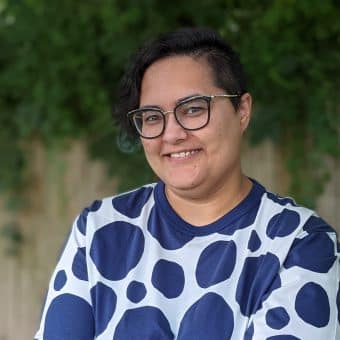
Jasmine Sawers

Jasmine Sawers is a Kundiman fellow and Indiana University MFA alum. Their work has won awards from Ploughshares, NANO Fiction, Fractured Lit and Press 53, appearing in Norton’s Flash Fiction America, Best Microfiction, SmokeLong Quarterly and Wigleaf. Their book, The Anchored World, was a finalist for the 2023 PEN/Robert W. Bingham Prize for Debut Short Story Collection. Originally from Buffalo, Jasmine now lives outside St. Louis.
What I’m looking for
The best flash gives us a full narrative without a word wasted or out of place. Like a marble of lead, it’s smooth, flawless, and heavier than it looks. I want to be beguiled by rhythm, voice, and image; I want to enter the piece eagerly, like a child in front of a gingerbread house, and exit it with the punctuation of a gut-punch, the slam of an oven door, a candy house in flames.
When I’m stuck…
Being stuck on your own work often means you’re too close to see where you’ve made missteps. For me regardless of whether my problem is emotional, motivational, or logistical, it ultimately comes down to some failure in craft that I could address if I gave myself space and time away to gain a clearer perspective on the problem. Art begets art, so to kickstart my brain while I’m giving myself that space and time, I read a book by a master, I listen to music I find resonant, I go to an art museum, I break out the paints or take a pottery/metalsmithing/glassmaking class. Writing is actually quite an abstract art form – letters are nothing but symbols whose arrangements signify different words, the images they conjure entirely in the minds of our readers – so it can be revelatory to create something concrete with your hands.
What would you say to your younger self?
On writing, I would tell myself to follow what moves me and not what other voices say are important to my work and career. Books and stories come out in their own time, and you will only regret putting out work you’re not 100% proud of.
Ever feel like giving up on writing?
Writing itself is and always has been a refuge for me, a means of creation, the one thing I can do well. When necessary, I give myself the time and space away that I espouse above. I always return to it anyway, like a hamster flung from a wheel mindlessly lumbering right back. The stories don’t stop building up in me even if other things have stoppered their creation, and I know by this point in my life that there’s no such thing as putting them or the drive to write away forever. I trust that I’ll always be back and I don’t sweat “losing it” anymore.
Photo credit Benjamin Nicotera
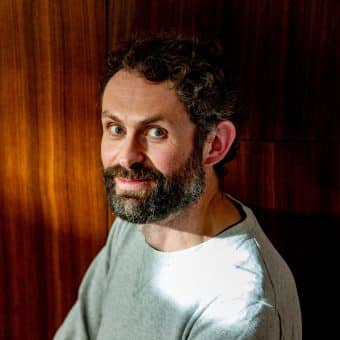
Ross Raisin

Ross Raisin has written four novels: A Hunger, A Natural, Waterline and God’s Own Country. His work has won and been shortlisted for over ten literary awards. He won the Sunday Times Young Writer of the Year award and was named the Best of Young British Novelists on Granta’s once in a decade list. He was awarded a Fellowship by the Royal Society of Literature.
What I’m looking for
I am looking forward to reading narratives that create something original – not for the kind of masthead originality that strives for noticeability above all else, but the kind of uniqueness that stems from a devotion to the craft and exploration of where the confluence of idea, language and story can create something new.
What would you say to your younger self?
Don’t worry that ideas will dry up; as long as you remain engaged with the world, remember and trust in your process, they will keep coming. And sit up straight, or one day you will be shaped like a horseshoe.
What do you do when you’re stuck?
Remember and trust in my process.
Ever felt like giving up on writing?
No, not giving up. Never that. But it does require a certain amount of steel (and, frankly, hard cash) to keep going without the sustenance of publicity or commercial reward. In truth – and it is a daily difficult truth – I have not been able to write, concertedly, for the last couple of years. However, and not wanting to end on a downer, I do remain hopeful, patient, and excited by what words have to offer. Which in turn explains precisely my eagerness to judge this prize.
www.rossraisin.com


